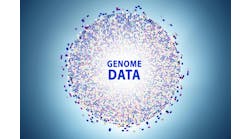Geisinger Health researchers have received funding support from the National Institutes of Health to explore innovative approaches for early, genomics-based detection of arrhythmogenic right ventricular cardiomyopathy (ARVC).
The NIH is providing Geisinger researchers $3.1 million over the next five years to work on ARVC, a degenerative heart disease responsible for approximately 20 percent of sudden cardiac death in individuals under age 35. Clinical symptoms of ARVC are frequently absent before a sudden death event, and it is often undetected in routine examinations.
This project is an extension of Geisinger's MyCode Community Health Initiative. MyCode is the largest biobank of whole-exome (DNA) sequence data in the world, with more than 250,000 consented participants, more than 90,000 completed sequences and approximately 50,000 more sequences underway. ARVC is one of 23 conditions for which actionable genetic findings in MyCode data are being screened and returned to patients, with consent.
"Genomic screening for ARVC offers an opportunity to identify patients at risk for sudden cardiac death prior to the presentation of symptoms," said Christopher Haggerty, Ph.D., principal investigator of the study and an assistant professor in Geisinger's Department of Imaging Science and Innovation, in a statement. "With early detection, there is the potential for preventive measures. For someone at risk of sudden cardiac death, this type of 'precision medicine' approach could save his or her life, giving us great hope that this research will provide the insights necessary to achieve this goal."
The multidisciplinary team — representing clinicians and scientists from Geisinger, a large integrated health system in central Pennsylvania, and the Johns Hopkins Medical Center — will develop insights and strategies through a multi-step approach.
Not everyone who has a genetic change related to ARVC will develop the disease. Therefore, the team is initially engaging with patients who have been notified of ARVC genetic findings through MyCode to learn about their current health and family history as it relates to typical ARVC features These efforts will provide critical data about how common these genetic findings are and how often they are associated with ARVC or other related heart diseases.
The researchers will also collect information about factors such as exercise and physical activity habits, which are thought to be related to the development of ARVC. Finally, the researchers will use advanced MRI techniques to acquire detailed measurements of the heart in these patients in the hopes of identifying subtle changes or abnormalities that may precede typical disease signs or symptoms.

